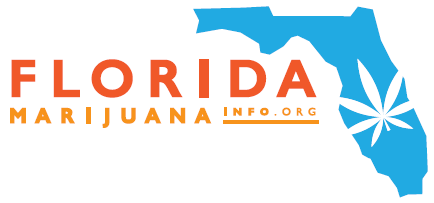Marijuana Legalization Facts
From Alaska to Florida, marijuana laws could be rapidly changing over the next few years. Voters and legislators alike are becoming convinced that the decades-long prohibition on marijuana has been an expensive and unsuccessful fight.
More Americans than ever are in favor of changing laws to regulate and tax marijuana for medical use, recreational use, or both. States would oversee the cultivation and distribution of cannabis (the biological name for marijuana), like they currently regulate alcohol and tobacco.
More Americans in Favor of Legalizing Marijuana
The American public is calling for reform to existing marijuana laws, as evidenced by recent polls, legislative action and voter behavior:
- A January 2014 poll showed that 55% of Americans support efforts to legalize marijuana for both medical and recreational use.1
- Voters in Colorado and Washington State passed ballot measures legalizing marijuana for personal use.
- Twenty states and the District of Columbia have legalized medical marijuana.
- Another 15 states, including Florida, have pending legislation or ballot measures to legalize medical marijuana.
- Individual state polls show consistent support for legalizing medical marijuana, ranging from 60 to 80%.2
- Sixteen states, including North Carolina, Minnesota, Ohio and Vermont, have passed laws decriminalizing marijuana, meaning no prison time or criminal record for first-time possession of a small amount for personal use.3
- A March 2014 poll asked Americans which substances they believed to be most harmful to overall health. Forty-nine percent chose tobacco, while 24% chose alcohol and 15% chose sugar. Only 8% chose marijuana.4
Not All Are in Favor of Marijuana Legalization
 Older individuals are much more opposed to legalizing marijuana than younger people. According to an NBC News/Wall Street Journal poll, 59% of Americans over the age of 65 opposed to legalizing weed, and only 38% favor it. Those aged 18 – 34 favor legalization by a 49-point margin, while those between 34 and 64 are evenly split.
Older individuals are much more opposed to legalizing marijuana than younger people. According to an NBC News/Wall Street Journal poll, 59% of Americans over the age of 65 opposed to legalizing weed, and only 38% favor it. Those aged 18 – 34 favor legalization by a 49-point margin, while those between 34 and 64 are evenly split.
A look at political parties show a division, as well, with Democrats who favor legalization in the majority by 34 points, while Republicans opposing it lead by 23 points.
The U.S. Office of National Drug Control Policy’s official stance is that marijuana is a highly dangerous drug that causes health problems, and that long-term use starting at a young age causes dependence and addiction.5 Groups like Citizens Against Legalizing Marijuana (CALM) are raising awareness of their cause to protect children and workplaces, and “call upon state legislatures and local governments to stop the spread of marijuana distribution and use.”
Marijuana Legalization Facts
Marijuana is the third most popular recreational drug, behind alcohol and tobacco, but it is used regularly by only about 7% of the population. Here are some additional marijuana legalization facts:
- Marijuana has been classified a Schedule 1 controlled substance by the federal government. It is a federal offense to grow, sell possess or use it—even in states where its use has been legalized.
- Around 750,000 people are arrested each year for marijuana—mostly for possession. Racial minorities are over-represented in the mix. While blacks and whites have roughly equal usage rates, blacks are nearly four times more likely to be arrested for possession.
- According to The Washington Post, there are twice as many marijuana arrests as there are students graduating from high school each year.
- Marijuana is often called a “gateway drug,” meaning its use leads to the use of other drugs, such as cocaine and heroin. However, most marijuana users never use other illicit drugs.6
- Marijuana has been shown to be beneficial to relieve the symptoms associated with diseases such as AIDS, cancer, Crohn’s disease and multiple sclerosis. It can also reduce muscle spasms and convulsions, relieve migraine headaches, and help reduce nausea and vomiting in patients receiving chemotherapy and other treatments.
- Medical marijuana also relieves intraocular pressure in glaucoma patients and can help increase appetite for patients with AIDS, cancer, anorexia and dementia.
- Marijuana is non-toxic and cannot cause overdoses.
- There are no recorded instances of death by marijuana overdose.
- The U.S. prison population is six to ten times higher than most Western European nations much of which is driven by the “war on drugs.” The U.S. is behind only Russia for its rate of incarceration.7
Advantages of Legalizing Marijuana
As marijuana becomes legally available in states across the country, tax receipts are increasing and state budget woes are easing. A product that was once available only on the black market is projected to bring an additional $134 million in tax revenue in the coming fiscal year to the state of Colorado, according to the office of the governor. Other states’ legislators are closely watching Colorado.
In addition to loss of tax revenue, states that do not legalize marijuana have much higher enforcement costs. It is estimated that the cost to taxpayers each year is around $10 billion.7
Perhaps most important to patients and parents in favor of marijuana use, legalizing it would give them legal access to a safe drug that can alleviate their suffering or that of their children.
Legalizing Medical Marijuana in Florida
Florida voters have the opportunity in November to decide on a ballot measure that would approve amending the state constitution to make medical use of marijuana legal for the first time. According to a poll by the Miami Herald, legalization is supported by as many as 70% of voters. Support is highest in the Orlando and Miami areas.
What’s your take on the Florida ballot measure? Do you think it will pass or fail? Leave your comment below!
Source:
1 NBC News/Wall Street Journal Poll
2 MPP.org
4 NBC News/Wall Street Journal Poll
6 DrugPolicy.org
7 NORML












 OMD Agency
OMD Agency
Recent Comments